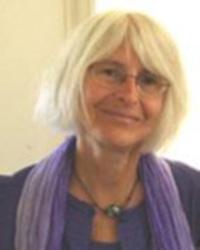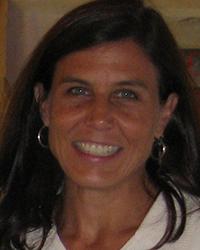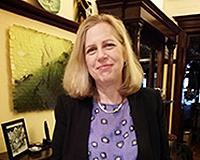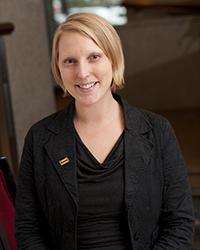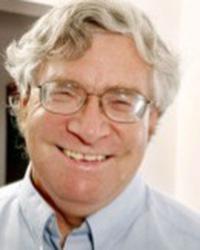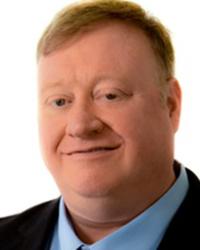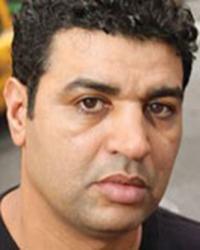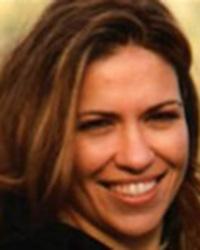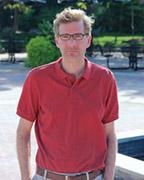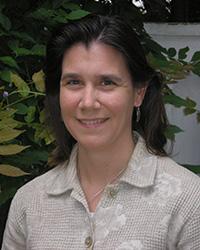CGMS April 2016 Conference: Organizing for Power and Workers' Rights in the Twenty-First Century
On April 14, 2016, the Center for the History of the New America at the University of Maryland will host a symposium exploring workers and organizing in the twenty-first century.
Conference Information
April 14, 2016
Prince George's Room, Stamp Student Union
University of Maryland, College Park, MD
About the Conference
On April 14, 2016, the Center for the History of the New America at the University of Maryland will host a symposium exploring workers and organizing in the twenty-first century. Attacks on the freedom to organize in the last several decades have created new challenges for working people. New creative approaches have consequently emerged in sectors across the economy such as in domestic care, fast food, big box merchandising, etc. This symposium seeks to examine all those areas while also placing them within the context of a rapidly globalizing environment. Some questions that interest us include: what are the most effective strategies for organizing and supporting working people today and in the future? How might we support a strong and mutually beneficial relationship between the workers’ centers that have emerged around the nation and the organized labor movement? Given the importance of immigrant workers to the 21st century political economy, how might we more fully integrate an understanding of global capital flows and outsourcing into our assessment of the challenges of labor organizing?
Elizabeth Shuler, Secretary-Treasurer of the AFL-CIO, will present a keynote address. The symposium will be convened by Dr. Julie Greene and Dr. Ira Berlin (Professors of History at the University of Maryland). Introductory remarks will be given by Daniel Mack, Associate Dean for Collection Strategies and Services, University Libraries.
The symposium will include two panels: “Building the 21st Century Labor Movement” is designed to assess the efficacy of current organizing strategies in areas such as fast food and Walmart, and help point us towards creative approaches for labor movements more generally. “Global Flows: Immigrants, Globalization, and the New Political Economy” will focus on interconnections between migration into the US and outsourcing and capital mobility globally.
In addition to the symposium, participants will be invited to view highlights from the George Meany Memorial AFL-CIO Archive, a prestigious archive recently added to Special Collections in Labor History & Workplace studies at the University of Maryland Libraries, and unique labor materials from the Gordon W. Prange Collection.
Schedule
9:00am
Welcome and Introductory Remarks
Julie Greene (Department of History, University of Maryland)
Daniel Mack (University Libraries, University of Maryland)
9:30am
Session One: Building the 21st Century Labor Movement
Eileen Boris (University of California, Santa Barbara)
Teresa Casertano (Communication Workers of America)
Lane Windham (Pennsylvania State University Center for Global Workers' Rights)
Panel Chair: Andres Villarreal (Department of Sociology, University of Maryland)
11:30am
Keynote Address by Elizabeth Shuler, Secretary Treasurer, AFL-CIO
"Worker Power in the 21st Century"
1:00pm
Lunch
2:00pm
Session 2: Global Flows: Immigrants, Globalization, and the New Political Economy
Elly Kugler (National Domestic Workers Alliance)
Nelson Lichtenstein (University of California, Santa Barbara)
Fekkak Mamdouh (Restaurant Opportunities Centers United)
Chair: Nancy Mirabal (Department of American Studies, University of Maryland)
4:30pm
Reception at the Gordon W. Prange Collection, featuring exhibits drawn from the Prange Collection and the George Meany Memorial AFL-CIO Archive
(Hornbake Library, 4th Floor)
Speaker Bios
Eileen Boris is Professor of History and Feminist Studies at the University of California, Santa Barbara where she holds the Hull Chair. Her research and teaching interests include labor studies, gender, race, class, women's history, and social politics. She is the author of numerous books including Home to Work: Motherhood and The Politics of Industrial Homework in the United States, which won the 1995 Philip Taft Prize in Labor History. Her latest book, Caring for America: Home Health Workers in the Shadow of the Welfare State (co-authored with Jennifer Klein) was the winner of the 2013 Sara A. Whaley Prize for best book on women and labor from the National Women’s Studies Association. Her current project considers the making of the woman worker as a distinct kind of worker through a history of the International Labor Organization. She earned her Ph.D. from Brown University in 1981.
Teresa Casertano is currently the Global Campaigns Organizing Coordinator at the Communications Workers of America. From 2010-2014 she served as the Global Campaigns Manager in the AFL-CIO Organizing Department where she worked on organizing campaigns focused on multinational companies. From 2004-2010 she was the Americas Director at the AFL-CIO Solidarity Center, where she worked with union partners from the US and Latin America on organizing and bargaining campaigns with workers in companies operating in several countries throughout North, Central and South America. From 1997-2003 she was the Solidarity Center Field Representative for Central America where she worked with the national labor movements to build new unions in key industries such as the telecom sector, apparel industry, and the agro-industries for export. As a young organizer she was trained by the US-based union, UNITE, to lead organizing and collective bargaining campaigns in apparel assembly plants in Guatemala producing for the U.S. market.
She holds a B.A. in Spanish and Latin American Studies from Wesleyan University and a Master’s in Social Work in Community Organizing from the University of Connecticut. She is a speaker of Italian, Portuguese, Spanish and English.
Julie Greene is Professor of History at the University of Maryland, College Park. Her research and teaching interests span across immigration and political history, the history of empire, and transnational approaches to the history of the Americas. She is the author of numerous articles and book chapters. Her second book, The Canal Builders: Making America's Empire at the Panama Canal, was awarded the 2009 James A. Rawley Prize for the best book on the history of race relations by the Organization of American Historians. She was founding Reviews Editor in 2004 of Labor: Studies in Working-Class History of the Americas, and continues to serve as an editor of the journal. With Ira Berlin, Greene is co-founder and co-director of the Center for the History of the New America at the University of Maryland, a center dedicated to generating knowledge of the history and politics of global migrations.
Elly Kugler began supporting domestic worker organizing in 2001, when she collaborated with domestic workers and community leaders to support the creation of the Colectiva de Mujeres in San Francisco, CA. From 2000 to 2007, she supported worker organizing at La Raza Centro Legal in San Francisco, taught popular theater and leadership skill to young people in Washington, D.C., and supported the leadership of day laborers and H2B workers in post-Katrina New Orleans with the New Orleans Workers’ Center for Racial Justice. She graduated from UCLA School of Law and the Epstein Program in Public Interest Law and Policy. As an attorney at Inner City Law Center in Los Angeles, she assisted homeless veterans with disabilities to obtain public benefits, expunge criminal records and exit from homelessness. She also defended low-income tenants in eviction proceedings and sued slumlords, and many of her clients were domestic workers who had to live in unhealthy and precarious housing situations due to their low-paid work.
Nelson Lichtenstein is MacArthur Foundation Professor in History at the University of California, Santa Barbara, where he also directs the Center for the Study of Work, Labor, and Democracy. His books include The Retail Revolution: How Wal-Mart Created a Brave New World of Business, American Capitalism: Social Thought and Political Economy in the Twentieth Century, State of the Union: A Century of American Labor, and Walter Reuther: The Most Dangerous Man in Detroit. His research interests include investigating how politics, production, and distribution intersect in a global economy; how workers and their institutions, both voluntary and governmental, remain central to anu understanding of U.S. society; and how intellectuals, credentialed and organic, frame the way we see the world, especially when it comes to class, capitalism, race, and gender.
Daniel Mack is Associate Dean for Collection Strategies and Services, University Libraries at the University of Maryland in College Park, where he provides leadership in policy creation and implementation, strategic planning, program development, and assessment for library collections. His previous positions include Tombros Librarian for Classics and Ancient Mediterranean Studies and Head of the Arts and Humanities Library at Penn State, and Library Director at the Dauphin County (PA) Prison. Mack has advanced degrees in library science and ancient history and has taught college courses in ancient history, Roman archaeology, classical literature and Latin grammar. Recent publications include work as co-editor of the Association of College and Research Libraries’ monograph Interdisciplinarity and Academic Libraries, as consulting editor for Brill’s New Pauly: Encyclopaedia of the Ancient World and as author of the “Language, Linguistics and Philology” section of the American Library Association’s Guide to Reference Sources. Mack’s current research interests include interdisciplinarity in the twenty-first century academy, assessment of library collections and services, and Roman civilization in the age of Caesar Augustus. When he has time, Mack plays the viola da gamba and cello.
Fekkak Mamdouh came to the United States from Morocco in 1988 at the age of 27—and he worked in New York City restaurants from the moment he arrived. As a waiter and shop steward at Windows on the World, he was always a staunch worker advocate. After September 11, 2001, he organized search parties for the families of the 73 victims who lost their lives at Windows, which led him to co-found ROC-NY (Restaurant Opportunities Centers - New York) in 2002 and then ROC United in 2008. Fekkak co-authored The Accidental American: Immigration and Citizenship in the Age of Globalization, a book about his life and the story of ROC.
Nancy Mirabal is Associate Professor of American Studies at the University of Maryland, Collge Park. She has published widely in the fields of Afro-diasporic communities in the United States and is also interested in the politics of territoriality, gentrification and spatialit, publishing two articles examining displacement and gentrification in the Mission District of San Francisco. She is first editor of "Technofuturos: Critical Interventions in Latino Studies" (NYU Press) and is completing a book entitled Hemispheric Notions: Diaspora, Masculinity, and the Racial Politics of Cubanidad in New York, 1823-1945 (NYU Press). She was a Chancellor's Post-doctoral Fellow in Ethnic Studies at UC Berkley, a Social Science Research Council Fellow in International Migrations, and a Scholar-in-Residence at the Schomburg Center for Research in Black Culture. She earned her PhD in history from the University of Michigan, Ann Arbor.
Andrés Villarreal is professor of Sociology at the University of Maryalnd, College Park. He is a specialist in the sociology of Mexico and the U.S., with an emphasis on migrations of Mexicans within Mexico, to the U.S., and returning to Mexico. He is the author of numerous articles, most recently “Ethnic Identification and its Consequences for Measuring Inequality in Mexico” in American Sociological Review. He is currently serving as the Principal Investigator for a National Institute of Child and Human Development project entitled “Economic Liberalization and Social Inequality in Mexico.”
Lane Windham earned her PhD in U.S. labor and working-class history at the University of Maryland in 2015. She worked in the labor movement for nearly twenty years. She directed the media outreach department for the national AFL-CIO during the John Sweeney administration, and worked as a union organizer in the South, helping workers in the clothing and textile industry form unions. Her work focuses on how the history of labor unions and class intersect with race, gender and the social welfare state in the post-World War II period. Her dissertation, entitled “Knocking on Labor’s Door: Union Organizing and the Origins of the New Economic Divide (1968-1985),” asserts that workers were actively forming unions in the private-sector throughout the 1970s, and that they did so with momentum from the civil rights and women’s movements. She currently serves as a lecturer for Penn State’s World Campus in Labor and Employment Relations.
Sponsors
Organizing for Power and Worker's Rights in the 21st Century is being sponsored by the Center for the History of the New America, the International Union of Bricklayers & Allied Craftworkers, and the University Libraries' Special Collections in Labor History & Workplace Studies.



